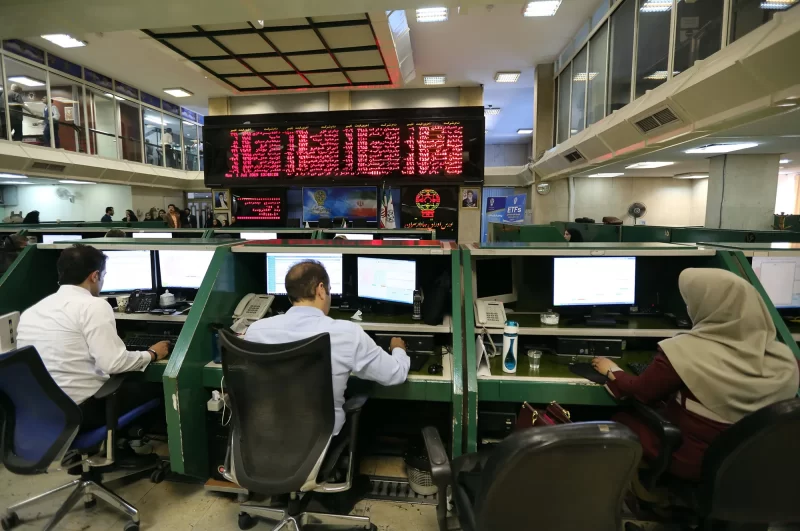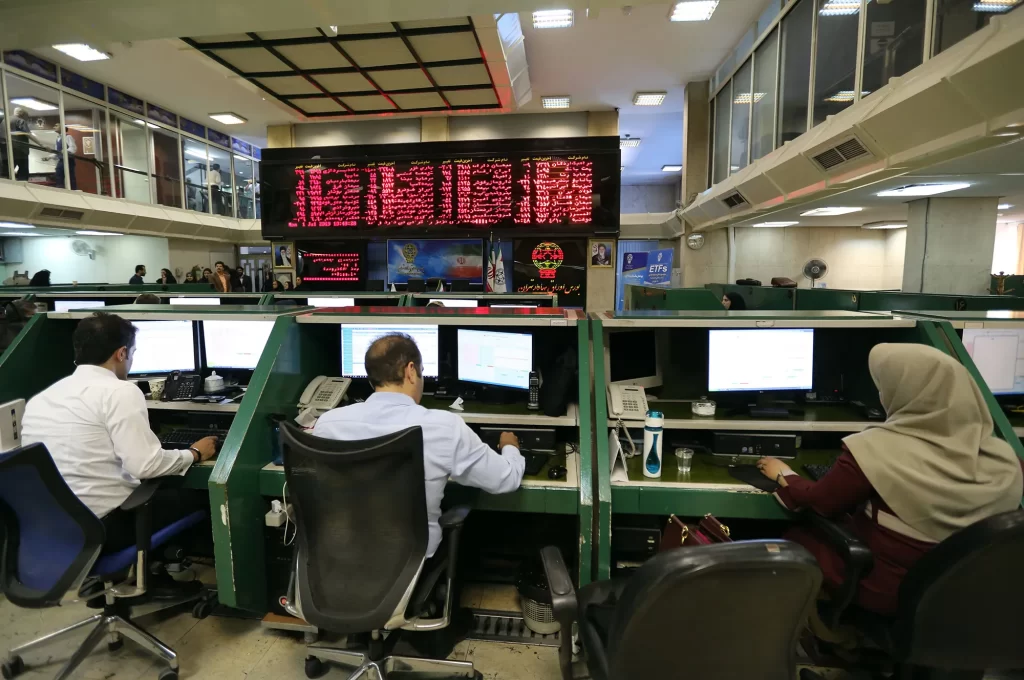Establishing a winning trading routine is a critical factor in attaining success in the dynamic world of forex trading. The implementation of key habits and practices holds the key to enhancing your trading performance and maximizing your potential for consistent profitability.
In this comprehensive guide, we will delve into each element of a winning trading routine, offering valuable insights and highlighting their significance in your journey as a forex trader. By adopting these essential habits and practices, you can optimize your trading strategies, make informed decisions, and position yourself for long-term success in the competitive forex market.
Also Read: How To Make The Best Of A Trading Journal
Clarify Your Goals and Define Your Trading Style

Setting clear goals and defining your trading style are fundamental steps in building a successful trading routine. By establishing specific and measurable objectives, you can align your trading decisions with your desired outcomes.
Also, understanding your trading style helps you identify the most suitable strategies and timeframes to focus on, ensuring a consistent approach that resonates with your preferences.
For example, if your goal is to generate consistent income from swing trading, you can design a routine that emphasizes analyzing daily and weekly charts, identifying key support and resistance levels, and holding positions for several days to capture larger market moves.
On the other hand, if you prefer quick intraday trades, your routine may involve monitoring shorter timeframes, using technical indicators for entry and exit signals, and focusing on high-liquidity currency pairs.
By defining your trading style and goals, you can tailor your routine to optimize your efforts and increase the probability of achieving your desired results.
Establish a Pre-Trading Ritual

A pre-trading ritual is more than just a routine; it is the foundation of your trading session. This essential habit allows you to gather relevant market information, analyze trends, and identify potential trade setups. By dedicating time to this ritual, you are better prepared and equipped to make informed trading decisions based on solid analysis and strategy.
Some examples of pre-trading rituals include reviewing economic calendars and news releases, analyzing overnight market developments, performing technical analysis on key currency pairs, and setting specific trade setups or scenarios to watch for during the day.
Developing a consistent pre-trading ritual helps you approach the market with a calm and focused mindset, enabling you to make more objective trading decisions.
Maintain a Trading Journal

Keeping a detailed trading journal is an invaluable practice that promotes self-reflection and continuous improvement. This journal serves as a historical record of your trades, enabling you to analyze your decision-making, evaluate trade outcomes, and identify patterns.
It allows you to identify strengths to capitalize on and weaknesses to address, leading to more refined trading strategies and improved results over time.
In your trading journal, you can document essential details such as the currency pair traded, entry and exit points, trade duration, position size, and the reasoning behind each trade. But it doesn't stop there. A trading journal goes beyond the basic facts and allows you to delve into the psychological and emotional aspects of your trading experience.
By regularly reviewing your trading journal, you gain a deeper understanding of your strengths and weaknesses as a trader. You can identify recurring patterns in your decision-making, spot any biases or emotional tendencies that may be affecting your performance, and make adjustments accordingly.
For example, you may discover that you tend to exit trades prematurely due to fear or exit too late due to greed. By recognizing these patterns, you can work on developing more disciplined and objective decision-making strategies.
You can analyze the success rate of specific setups or indicators, identify optimal timeframes for your trading style, and fine-tune your risk management practices. Over time, this process of analysis and refinement can lead to the development of more robust and profitable trading strategies.
Implement Effective Risk Management

Risk management is a non-negotiable aspect of successful trading. Failing to incorporate proper risk management practices exposes you to unnecessary risks and potential losses. By determining appropriate position sizes, setting stop-loss orders, and establishing realistic risk-reward ratios, you protect your capital and ensure a sustainable approach to trading.
The first step in effective risk management is determining the appropriate position size for each trade. This involves considering factors such as your account size, risk tolerance, and the specific trade setup.
By allocating a reasonable percentage of your capital to each trade, you ensure that a single trade does not have an excessive impact on your overall portfolio. It is generally recommended to risk no more than 1-2% of your trading capital on any given trade.
Another essential risk management practice is setting stop-loss orders. A stop-loss order is a predetermined level at which you are willing to exit a trade to limit potential losses. By placing a stop-loss order, you define your maximum acceptable loss for each trade and protect yourself from significant drawdowns.
It is crucial to set stop-loss levels based on technical analysis, support and resistance levels, or other relevant indicators to ensure they are strategically placed. Risk management is not only about avoiding losses but also about preserving your trading longevity and creating a solid foundation for consistent profitability.
Remember, disciplined risk management is a key differentiator between successful traders and those who struggle to achieve long-term success.
Cultivate Emotional Discipline

Emotional discipline is a critical factor in maintaining consistency and avoiding impulsive decisions that can lead to significant losses. By managing emotions such as fear, greed, and frustration, you can maintain a rational and objective mindset. Cultivating emotional discipline helps you adhere to your trading plan, make well-thought-out decisions, and avoid costly mistakes caused by emotional biases.
One of the first steps in cultivating emotional discipline is self-awareness. Recognize and acknowledge your emotional triggers and how they can impact your trading. For example, fear of missing out (FOMO) may lead to impulsive trades, while greed can push you to hold onto losing positions for too long. By understanding these emotions and their potential consequences, you can take proactive steps to manage them.
Developing a structured trading plan is instrumental in cultivating emotional discipline. A well-defined plan outlines your trading strategies, entry and exit points, and risk management rules.
When you have a plan in place, you are less likely to make impulsive decisions driven by emotions. Stick to your plan and avoid deviating from it based on short-term market fluctuations or emotional impulses.
Another important aspect of emotional discipline is practicing patience and avoiding the temptation to overtrade. The forex market operates 24/5, and there will always be opportunities.
However, it is essential to wait for high-probability setups that align with your trading plan. Avoid chasing every market move or trying to recoup losses quickly. By being patient and selective in your trades, you reduce the likelihood of entering unfavorable positions driven by emotional impulses. Effective stress management techniques are also vital for maintaining emotional discipline.
Continuously Educate Yourself

Forex markets are dynamic, and staying updated on market trends, economic indicators, and trading strategies is crucial. By continuously educating yourself, attending webinars, and workshops, and engaging with reputable sources, you enhance your knowledge and skills.
Ongoing education ensures that you are equipped to adapt to changing market conditions and capitalize on new opportunities. One of the most effective ways to educate yourself is by staying updated on market trends and news.
Regularly read financial news articles, follow reputable sources, and monitor economic calendars to stay informed about the latest developments that may impact the forex market. Understanding the fundamental factors that drive market movements can help you make more informed trading decisions.
Attending webinars, workshops, and seminars hosted by experienced traders and industry experts is another valuable form of continuous education. These educational events provide insights into trading strategies, risk management techniques, and market analysis methods. Engaging with industry professionals allows you to learn from their experiences and gain new perspectives on trading.
Seek Feedback and Adapt

Seeking feedback from experienced traders or mentors is an effective way to accelerate your learning and growth. Constructive criticism and support from a trading community provide valuable insights into your trading performance, enabling you to identify areas for improvement. Adapting your trading routine based on feedback allows you to fine-tune your strategies and refine your approach over time.
One way to seek feedback is by joining trading communities or forums where you can interact with fellow traders. Engage in discussions, share your trading experiences, and seek input from others.
By participating in these communities, you can gain different perspectives, learn from the experiences of others, and receive valuable feedback on your trading strategies and decisions.
Having a trading mentor or coach can also provide invaluable feedback and guidance. A mentor with experience and expertise in forex trading can review your trading performance, analyze your strategies, and offer personalized advice to help you improve.
Their objective perspective can shed light on blind spots and help you make necessary adjustments to your routine. Remember that adaptation is an ongoing process. The forex market is dynamic, and market conditions can change rapidly.
By staying receptive to feedback, continuously reviewing your performance, and making appropriate adaptations, you can stay ahead of the curve and refine your trading routine over time.
Maintain Self-Discipline

Self-discipline is the bedrock of a winning trading routine. It involves adhering to your trading plan, following predetermined trading hours, and avoiding impulsive decisions driven by emotions or external distractions. By maintaining self-discipline, you create a structured and focused trading environment that maximizes your chances of success.
One of the key aspects of self-discipline is adhering to your trading plan. A trading plan outlines your strategies, entry and exit criteria, risk management rules, and overall trading approach.
By following your plan consistently, you avoid impulsive decisions and ensure a systematic and disciplined approach to trading. This helps to mitigate the influence of emotions and keeps you on track with your intended trading strategy.
In addition to following your trading plan, maintaining self-discipline involves establishing and adhering to predetermined trading hours. By defining specific time periods for trading and sticking to them, you create a structured routine that promotes focus and minimizes distractions. This helps to avoid overtrading and impulsive decision-making outside of your designated trading hours.
The Risk of Not Having a Trading Plan or Routine

Not having a trading plan or routine exposes traders to significant risks in the forex market. Without clear goals, strategies, and a structured approach, traders may make impulsive decisions driven by emotions or market noise, leading to inconsistent practices, poor risk management, and increased losses.
It is essential for traders to develop a well-defined trading plan and routine to mitigate these risks and increase their chances of success in the forex market. A trading plan provides a roadmap for consistent decision-making, disciplined risk management, and increased profitability. Remember, in the highly competitive and volatile forex market, failing to plan is planning to fail.
Here are the key risks associated with not having a trading plan or routine:
Impulsive Decisions
Without clear goals and strategies, you may make impulsive trading decisions based on emotions or market noise. This can lead to inconsistent and irrational trading behavior, resulting in poor risk management and potential losses.
Missed Opportunities
A lack of direction and focus can cause you to miss out on potential profitable trades. Without a plan to guide your decision-making, you may overlook promising opportunities or enter and exit trades haphazardly, limiting your potential gains.
Lack of Discipline
A trading routine helps establish discipline and consistency in your trading activities. Without a routine, it becomes challenging to adhere to your strategies, follow risk management practices, and maintain self-control. This can lead to undisciplined trading behavior, increasing the risk of poor performance and financial setbacks.
Overtrading
Without a plan or routine, there is a higher likelihood of overtrading – making excessive trades without proper analysis or justification. Overtrading can deplete your trading capital, increase transaction costs, and dilute your focus, resulting in lower profitability.
Chasing Losses
Emotional decision-making, such as chasing losses, is more prevalent when there is no structured plan or routine in place. The absence of a clear strategy may tempt you to take revenge trades or engage in impulsive actions to recover losses, leading to further losses and emotional distress.
Fear and Greed
Without a plan or routine to guide your actions, you are more susceptible to emotional biases, particularly fear, and greed. Fear can lead to missed trading opportunities, while greed can drive you to take excessive risks. Both emotions can disrupt sound decision-making and negatively impact your trading outcomes.
Lack of Accountability
A trading plan and routine provide a framework for accountability. Without them, it becomes difficult to evaluate your trading performance objectively and identify areas for improvement. This hinders your ability to learn from past mistakes and grow as a trader.
Lack of a trading plan or routine increases the possibility of running into these hazards, which can negatively impact your trading performance and overall success in the forex market. To minimize these risks and increase your chances of reaching your financial objectives, it is crucial to understand the significance of creating a disciplined strategy for trading.
Takeaway
In conclusion, having a well-defined and effective trading routine is essential for achieving success in the financial markets. Professional traders understand the importance of following a daily trading routine to maintain discipline, mitigate risks, and increase the likelihood of consistent profitability.
By implementing a structured daily routine, day traders and swing traders alike can optimize their trading day, identify high-probability trades, and make the most of their trading time. A routine helps establish a clear focus and ensures that traders are prepared and ready to take advantage of potential opportunities in the financial market.
The successful trader starts their day with a morning routine that includes reviewing financial websites, analyzing overnight price movements, and setting specific goals for the trading day. This sets a positive tone and helps traders approach the market with a clear mindset.
Within their trading routine, traders should define their trading style and goals, identify the most suitable trading timeframes, and select the appropriate forex pairs or stocks to trade. Conducting thorough market research and analysis allows traders to identify high-probability trades and make informed trading decisions.
Trade execution is a critical aspect of any trading routine. Using the same platform for trade execution ensures consistency and efficiency in trade management. Traders should also focus on effective risk management, setting appropriate stop-loss levels and profit targets to protect their capital and maximize their potential returns.
Continuous education is key to becoming a better trader. Day traders and swing traders should continuously seek opportunities to learn and adapt, attend webinars and workshops, and engage with experienced traders or mentors. This ongoing education helps traders stay updated on market trends, refine their strategies, and adapt to changing market conditions.
Furthermore, a well-structured and effective trading routine that incorporates daily habits and practices is a key driver of success in the financial markets. By following a routine that encompasses goal setting, market research, trade execution, risk management, and continuous learning, traders can enhance their decision-making, minimize emotional trading, and capitalize on profitable opportunities. Remember, a brief review of your daily routine can yield valuable insights and improvements, making you a better and more successful trader in the long run.
Remember, trading is a journey that requires dedication, self-reflection, and continuous improvement. By embracing the habits and practices outlined in this guide, and by acknowledging the risks of not having a trading plan or routine, you can enhance your trading experience, mitigate potential pitfalls, and increase your chances of achieving your financial goals in the dynamic world of forex trading.
Frequently Asked Questions
How to establish a consistent trading routine with a busy schedule?
Developing a consistent trading routine with a busy schedule involves prioritizing dedicated trading time and creating a focused environment. Allocate specific periods for trading, eliminate distractions, and ensure uninterrupted focus.
Should my trading routine be flexible or strictly adhered to?
Balancing flexibility and discipline is key. While a structured plan is important, it's crucial to adapt to changing market conditions. Your routine should allow for adjustments while maintaining core principles and strategies.
Can a trading routine help manage emotions and reduce stress?
Yes, a well-designed routine helps manage emotions and reduces stress. Following predefined rules minimizes impulsive decisions driven by fear or greed. A routine fosters a logical and objective mindset, leading to controlled and confident trading.


















